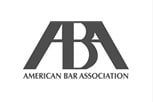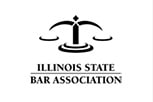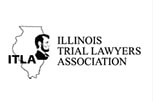Are car insurance companies cutting corners in auto repairs?

Car insurance is required in nearly all states, including Illinois. Drivers who obey the law and diligently pay their premiums may expect fair treatment from their insurance companies. Unfortunately, this is not always the case. According to CNN, consumers may need to pay close attention to the actions of their insurers in the wake of a car accident. Some auto shops are claiming that insurance companies employ coercive tactics to lower the cost of vehicle repairs. These shops state that insurers intentionally divert business away from garages that refuse to perform shoddy, low-cost repairs. If these claims are true, these insurance companies are engaging in extremely dangerous practices, as any auto accident lawyer in Chicago would note.
How the alleged coercion works
According to CNN, many insurance companies offer referrals to auto garages through preferred-shop programs. These are listings of repair shops provided to insured drivers who need to have their vehicles repaired after an accident. As many auto shops receive a great deal of business from post-accident repairs, inclusion in these lists may drastically impact a shop’s profits.
The shop owners in the CNN report allege that insurance companies are requesting cheaper repairs in order to save money on accident claims. These repairs are often low-cost because they sacrifice safety and quality. According to some garage owners, insurance companies will steer their policyholders away from any shops which refuse to perform these cheap repairs.
Dangerous auto parts
As described by the complaining auto shop owners, these subpar repairs often involve the use of cheap, low-quality auto parts. These products may have been counterfeited, or salvaged and poorly reconstructed. Some parts may be held together with nothing but glue. According to some auto shop owners, such products should not be installed into vehicles because they pose safety hazards.
These types of auto products are sometimes called aftermarket parts. According to the U.S. Department of Commerce’s International Trade Administration, aftermarket automotive products may be classified as either replacement products or accessories. Replacements are intended to replace original equipment—that is, equipment that went into a vehicle’s original manufacturing. Aftermarket accessories are add-ons that may occur after or during the vehicle’s original sale.
According to CNN, the insurance industry claims that aftermarket parts are usually aesthetic. The office of the Louisiana attorney general, however, disagrees. The AG’s office claims that in at least two instances, aftermarket products did not perform as they should. In these cases, an aftermarket bumper and car hood were installed in repaired vehicles. Both failed to perform as expected when these vehicles were involved in crashes.
Federal vehicle safety regulations
According to the Specialty Equipment Market Association, aftermarket parts may fall under the National Highway Traffic Safety Administration’s regulations. Parts related to safety may be specifically addressed by the NHTSA’s Federal Motor Vehicle Safety Standards, as any auto accident lawyer in Chicago would know.
These standards apply to the safety equipment in motor vehicles, such as tires, brake systems and headlights. The minimum safety requirements outlined in these regulations are intended to protect the public against unreasonable risk of collisions that result from motor vehicles’ design, performance or construction.
The FMVSS aims to protect consumers against unreasonable risks of injury or death in the event of an accident. It is unclear from reports whether the allegedly subpar repairs have been compared against these federal standards. If it is discovered that parts used in these repairs do not comply with the FMVSS, the NHTSA may initiate legal action against the parties involved.
Illinois laws on used, recycled and aftermarket auto products
States are also free to pass laws that regulate vehicle parts. In Illinois, there are several laws dealing with auto shops and used, recycled and aftermarket auto products. These statutes, however, do not specifically provide any safety standards for such parts.
The Automotive Collision Repair Act regulates the interactions between automotive repair businesses and consumers. This law requires that auto shops identify in their estimates whether they are using aftermarket, rebuilt or reused parts. The statute does not establish any safety requirements for the use of these auto products.
Similarly, the Illinois Vehicle Code does not provide much guidance on the matter. Article III of the IVC addresses some issues regarding recyclers and rebuilders of automotive parts. However, the law is primarily concerned with the requirements for licensing such businesses.
The impact on Illinois residents
The issue of steering is rampant nationwide. CNN states that garages in over 30 states have joined to initiate legal action against insurers. According to Repairer Driven News, this group includes auto shops located in Illinois.
Officials from the insurance industry contest the allegations that auto shop referrals are used coercively. These spokespersons claim that, while some insurers do use preferred-shop programs, consumers always have the final say in where their vehicles are repaired. In Illinois, however, the situation may not be as clear-cut as industry officials are claiming. The Illinois Department of Insurance agrees that consumers may choose their own auto garages. However, if a repair shop charges a higher price than a shop suggested by the insurer, the consumer may need to pay the difference.
When trust is abused, take action
Many people who are in car accidents rely on their insurance carriers to handle the costs of these repairs. Moreover, they trust that the repairs are done properly and that their vehicles will be safe once the repairs are completed. When this trust is abused, many consumers begin to look for ways to hold their insurance companies accountable. Those who are in such a position may want to speak with an auto accident lawyer in Chicago. Consulting with an attorney may help such victims decide whether to pursue legal action against their insurers.




